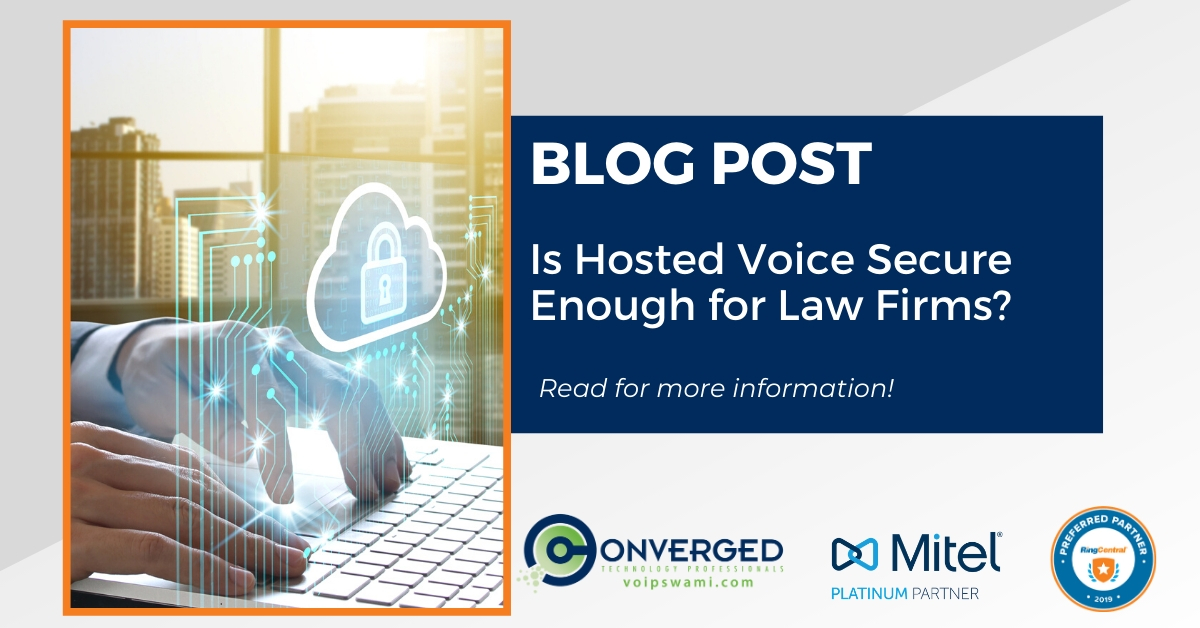
Law firms used to have an undeserved reputation for being slow to adopt new technology. Many felt there was a lack of desire and motivation to change across the legal industry. But lawyers now have a very different mindset now that law firms have been forced to meet the digital demands and needs of their clients.
Solving legal problems with technology
Rather than wasting time debating the rise of law tech or legal tech, many lawyers are simply looking to solve real problems with technology. For example, when the American Bar Association Young Lawyers Division (ABA) dealt with a massive increase in the need for civil legal services caused by the global pandemic, they began exploring unified communications solutions.
Stay at home mandates meant that lawyers needed to find new ways to remain in continuous contact with their clients and colleagues regardless of the time or location. Unified communications solutions also provide new revenue opportunities by enabling firms to track and calculate every phone call, voicemail, and text message with each of their clients.
Traditionally, lawyers would regularly need to get everyone together into expensive meeting room spaces.
But our world has changed.
VoIP: voicing privacy and security concerns
Although their clients embrace automated, online legal services, lawyers will also be nervous about unwittingly inviting data breaches and cyber-attacks to their firm.
When digitizing client communications, verifying that privacy will continue to be maintained along with the protection of confidential information will be imperative for legal teams.
Data privacy should be at the heart of a unified communications strategy. A VoIP network will share the same risks of security threats as your corporate network and need to be protected accordingly.
Rather than rushing into any solution because of shiny new features, you should be looking for an industry-respected unified communications partner to guide you through industry best practices.
Protecting your legal firm can be made much easier by implementing secure authentication protocols from the outset. Your support partner should also advise you on the separation of voice and data networks. VoIP aware firewalls should also ease any concerns by proving that your firm can be both efficient and productive while not sacrificing security for your firm or your clients.
Enterprise VoIP security best practice
Protecting digital communications in your law firm should be a joint responsibility. It will be your team that will manage the day to day activities.
Typically, this will involve:
- managing user permissions
- login information
- account policies
But it will be your cloud support partner that you will need to entrust with the implementation and the service delivery elements. From the outset, you need to be assured that your potential support partner designs security into its product.
You already know that a secure and reliable phone service is critical to your business operations. Cloud service providers are challenged with meeting this requirement with a robust multi-tenant cloud communications service. All of these services should be built on the foundations that consist of several layers of built-in security.
Encrypted communications
At the very least, law firms should expect that VoIP phones are behind firewalls, and encryption is implemented on their account. Lawyers will also need to ensure that sensitive messages can only be retrieved via an encrypted web session.
Security teams that dare to look at what goes on under the hood of any cloud VoIP system will be looking for:
- Lv3/TLSv1 to ensure web-session traffic phone provisioning sessions are encrypted
- Desk phones, mobile applications, and desktop applications should also support encrypted calls using Session Initiation Protocol (SIP)
- Transport Layer Security (TLS) is also used for signalling
- Secure Real-time Transport Protocol (SRTP) is typically used to secure media

Video Security
Stay at home mandates and shelter at home orders has brought video conferencing into the spotlight. Many turned to the Zoom platform for meetings, classes, and social gatherings. But a long list of security loopholes revealed that it's far from ideal for discussing corporate secrets, legal issues, or disclosing personal health information to a patient.
Although Zoom has patched many of the security flaws that hit the headlines, it highlighted a naive approach to security. By contrast, cloud-based communications and collaboration solutions are designed with safety and security in mind.
For example, RingCentral Meetings encrypts all of the presentation content from your videos with TLS 1.2 and the Advanced Encryption Standard 256-bit algorithm.
The future of legal communications
Every law firm now requires a robust communications strategy that seamlessly unites its lawyers, clients, and stakeholders in a connected world. Simplifying how you collaborate will naturally increase your firm's ability to focus and be more productive.
However, for many lawyers, it will be less about the technology or even the business value.
Before moving forward, they will need to be assured by the right unified communications support partner that this future vision can be delivered without sacrificing the privacy and security that their firm demands.
Any vendor that does not prioritize security should be avoided at all costs. But the right support partner will share the responsibility with your law firm and guide you through how to defend your VoIP Network.
At a time where business continuity is a hot topic, streamlining communications will help you not only enhance but improve the client experience too. If you would like to explore how you can transform your law firm with a unified communication solution, please contact us to learn more.
If you enjoyed this article you may also enjoy:
Like this Article? Share it below!
